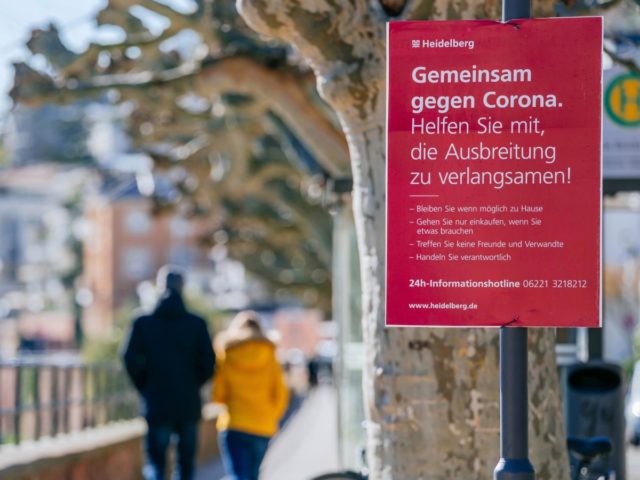German Chancellor Angela Merkel introduced a string of new emergency guidelines, banning public gatherings of more than two people, in an attempt to slow the spread of coronavirus.
On Sunday, Dr Merkel said that announced a nine-point plan that will be in effect for the next two weeks, as the number of infections in the country has risen to 23,974, with 92 people losing their lives to the Chinese virus.
The guidelines introduced by the government will ban public gatherings of more than two people, with the exception of families who live in the same house. Citizens were told by the German leader to keep a distance of 1.5-metres (4.9 feet) from other people when in public.
Restaurants have been told to close except for those that can serve customers through take-away. Hair-dressers, massage parlours, tattoo studios, and other businesses where it is impossible to keep a safe distance have also been told to close, according to Deutsche Welle.
“This is my urgent appeal to the few who have struggled to follow the rules. Please let’s all pull together to do what’s right for our country. Show sense and heart,” she said during Sunday’s announcement.
Following the announcement, the 65-year-old Chancellor was taken to her home, where she will remain in self-quarantine after it was revealed that a doctor who had treated her was infected with coronavirus.
In Germany’s federal system, individual states have a large amount of autonomy in dealing with the crisis, which is why the measures introduced by Merkel are not mandatory but rather referred to as guidelines.
Bavaria, Germany’s largest state, has already enacted strict lockdown protocols, however, will not be adopting the federal guidelines that ban the gathering of more than two people.
North Rhine-Westphalia, on the other hand, said that it would be implementing the federal guidelines. The leader of the state and a contender to replace Angela Merkel as chancellor, Armin Laschet, added that those who break the rules in the state could face fines up to €25,000 (£23,000).
On Monday, the government in Berlin will introduce an economic stimulus package with €122.5 billion (£114bn) in extra spending to make up for the slumping economy, the Financial Times reports.
According to projections, the economic fallout of the virus will lead to a tax revenue shortfall of €33.5 billion (£31.1bn). Lawmakers in Berlin are also said to be readying a €500 billion (£464bn) bailout fund for German companies.
Follow Kurt on Twitter at @KurtZindulka

COMMENTS
Please let us know if you're having issues with commenting.